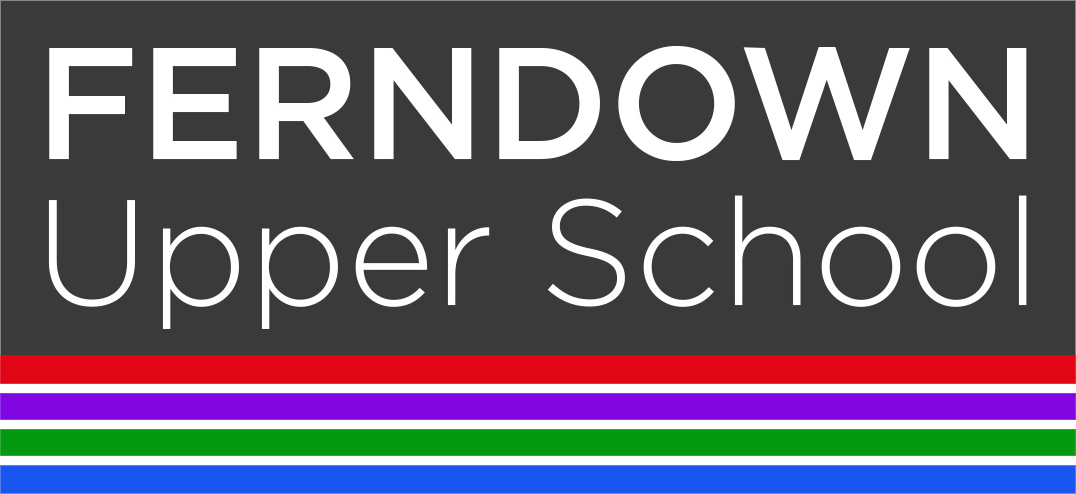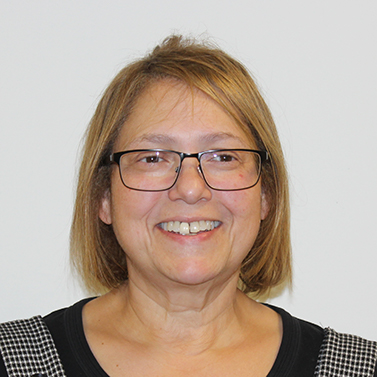Welcome to Drama
‘I regard theatre as the greatest of all art forms, the most immediate way in which a human being can share with another the sense of what it is to be a human being.’ Oscar Wilde.
To have confidence and to communicate expressively in a way that engages an audience, will open many doors for our students. While some drama students might want to be a budding actor, the study of drama is not limited to the field of Theatre. The skills developed in Drama support the demands of most creative and modern careers. Just think about how performance skills are used in a commercial and competitive world; in a boardroom, on a committee, competing for promotion, doing a sales pitch on the Apprentice!
At Ferndown, the drama studio is a place of challenge where valuable lessons are learned about how to work together and communicate effectively. In creating original plays, young people are given a voice, so others might listen. Honing and developing an appreciation of the playwrights that scan 2500 years, captures our history, our sociological change and the human connection between us all. It is a joy to support students in developing their confidence, their character and their creativity through the study of drama.
Meet The Drama Department Staff
The Curriculum
All students in Year 9 have two lessons of drama every fortnight. Students work together in a safe and encouraging environment to build confidence and develop their voice in preparation for professional and creative careers. Students write inspirational speeches, take part in workshop presentation of Shakespeare’s Romeo and Juliet plus develop work from plays that are watched and explored in lessons. Students are encouraged to opt for drama during year 9 to continue to develop these most important personal communication and artistic skills.
In Year 10, students practically explore the theatre practitioners; Stanislavski, Brecht and Artaud which gives them a good reference source for written work and a sound understanding of dramatic style. All students are then involved in a community play to exercise their performance and group skills – the subject matter is inspired by current community issues and or events; this year the community play is about ‘Refugees’. Students then study a published play which is ‘Blood Brothers’ by Willy Russell and see a streamed theatre performance, both of which are written about in the Summer written examination. By the end of the year students would have created their first original piece of theatre. We are hoping that families will be able to watch live performances throughout the year through the wonders of modern technology.
In Year 11, Students develop their original piece of theatre for examination and provide a devising log (2,500 words) noting down the research, the journey and rehearsals that led to their final performance. This year students are working on a monologue performance. This is followed by a scripted performance that is selected to maximise the acting potential of current group. And finally students prepare for their written exam by revisiting Blood Brothers and reviewing a streamed performance.
By studying Drama, students will develop:
• Their confidence in communicating with imagination and expression
• Their social skills in negotiation and team work
• Their performance skills in producing pieces of drama that engage and enthral your audience
• Their thinking skills about people, feelings, situations, life and the world in which we live
As part of the courses students will:
• See streamed theatre performances
• Perform in a Community Play
• Present a monologue
• Showcase examination work
• Develop their written analysis of drama work
Choosing drama will be a challenge but it will also be fun and rewarding.
• Students will make new friends
• Build their self-esteem
• Hear the applause of the audience
• Learn in a way that is different from their other subjects
Facilities and Equipment
Ferndown Upper School has dedicated spaces for rehearsal and drama workshops:
Main Stage/Hall – An excellent performance space with lighting, sound and cushioned performance floor.
B1- The Drama Studio is a fully equipped performance space with lighting, sound and blackout.
Dance Studio – The dance studio is a focused space with a soft lino floor, mirrored wall and bar.
Curriculum Content of each academic year
Year 9 | |
Course | Content |
Drama | Inspirational Speeches Romeo and Juliet Brainstorm – Being a Teenager Oedipus by Sophocles The Odyssey by Hattie Taylor Splendid Productions -Theatre analysis and evaluation- |
How its assessed: | Performance Theatre Review |
Year 10 | |
Course/ Exam Board | Content |
Drama GCSE/AQA | Community Play Theatre Practitioners -Stan, Brecht and Artaud- Comp 2 – Devising Drama Blood Brothers by Willy Russell Comp 3 – Texts in Practice (Grimms Fairy Tales) |
How its assessed: | Devising Log Practice Exam Questions Summer Written Exam Devised and Scripted Performances |
Year 11 | |
Course/ Exam Board | Content |
Drama GCSE/AQA | Comp 2 – Devising Drama (Final) 40% Comp 1 – Revising Blood Brothers 40% Theatre Performance Analysis Comp 3 – Text in Practice (Final) 20% |
How its assessed: | Devising Log Practice Exam Questions Summer Written Exam Devised and Scripted Performances |
Year 12 | |
Course/ Exam Board | Content |
Drama and Theatre A level/AQA | Greek Theatre Brecht and the Caucasian Chalk Circle Devising Mock Berkoff and Metamorphosis The Modern Monologue The Paper Birds/Verbatim as Practitioners |
How its assessed: | Devised and Scripted Performance Practice Questions Working Note Book Summer Written Exam |
Year 13 | |
Course/ Exam Board | Content |
Drama and Theatre A level/AQA | Comp 2 – Devised Performance and Working Note Book (Final) 30% Comp 3 – Texts and Practitioners – -Brook & Mitchell – (Final) 30% Comp 1 – Revision of Chalk Circle, Metamorphosis and Streamed Theatre (Final) 40% |
How its assessed: | Written Exam (3 hours) Devised Performance Scripted Performance Working Note Book (C2: 3000 words) Reflective Report (C3: 3000 words) |
Careers in Drama and Theatre
An Arts Education can give students access to employment in the creative industries; an area of the UK economy that in 2016 was valued at over £100 billion and according to Gov.Uk ‘flies the flag for Britain’ and is the ‘heart of the economy’. Quite clearly the pandemic has affected its current status but it will rise again.
The skill-set that students develop by studying Drama, in particular, are relevant to jobs within the theatre such as acting, directing, stage and event management, script writing and technical theatre. However graduates of drama and theatre may also take up careers in the following sectors:
- Education;
- Commercial and public sector management;
- Social/Welfare;
- Marketing/sales/advertising;
- Business/financial.
Where the development of life-skills, in a forever changing job market such as confidence; self-presentation; teamwork and collaboration; time management and organisational skills; self-awareness; self-discipline; an open mind and the ability to move beyond boundaries and experiment with different ideas; communication skills; analytical, critical and research skills; the ability to cope with criticism and learn from it; stamina… to name but a few, will open the doors to a myriad of careers as they offer employers what they are looking for. https://scudd.org.uk/prospective-students/drama-and-employability/
Labour Market Information – LMI
It is useful to look at the labour market when considering a career in Drama and Theatre. This sector is a growth area in terms of employment opportunities by 1.9% for actors, entertainers, presenters, arts officers, producers and directors.
The LMI for All portal provides high quality, reliable LMI information – see link below: https://www.lmiforall.org.uk/
Examples of Some Learning Pathways
Planning on going to University? There a many universities that study drama and theatre, in fact there are 72 universities that offer 347 courses for Undergraduate Drama Studies degrees. https://www.whatuni.com/degree-courses/search?subject=drama-studies
To become an actor many students go to a Drama School to do their training, where you will also network with similar individuals, build contacts, attract agents and develop your acting experience. It remains a highly competitive route but if you have the passion then worth choosing this path. https://www.stagemilk.com/best-drama-schools-uk/
Alternatively, research your area of interest e.g. if you wanted to become a drama therapist then you would complete a drama degree and then do a post-graduate course in Drama Therapy.
Or even, you might like to work in a creative company like the BBC in which you could apply for an apprenticeship. Check out this opportunity to become a production assistant? (April 2021) https://www.bbc.co.uk/careers/trainee-schemes-and-apprenticeships/apprenticeships/production-apprentices
The choices are exciting and limitless. The prospects of an enjoyable career, doing something you love is out there. https://www.prospects.ac.uk/careers-advice/what-can-i-do-with-my-degree/drama https://studylink.com/study/pathways/drama

